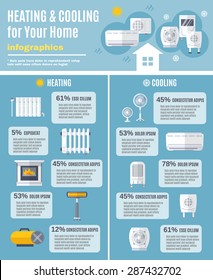The Future Of Home Home Heating - Exactly How Heat Pump Modern Technology Is Advancing
The Future Of Home Home Heating - Exactly How Heat Pump Modern Technology Is Advancing
Blog Article
Material Create By-Dawson Goff
Heatpump will be a vital technology for decarbonising heating. In a situation consistent with federal governments' introduced power and environment commitments, their international capacity doubles by 2030, while their share in heating rises to one-quarter.
They function best in well-insulated homes and rely on electrical power, which can be provided from a renewable power grid. Technical breakthroughs are making them much more reliable, smarter and less expensive.
Fuel Cells
Heatpump make use of a compressor, cooling agent, coils and fans to move the air and warmth in homes and appliances. They can be powered by solar power or power from the grid. They have actually been obtaining appeal as a result of their inexpensive, silent operation and the capacity to produce power during peak power need.
Some business, like IdaTech and BG MicroGen, are working with fuel cells for home heating. These microgenerators can change a gas central heating boiler and produce several of a house's electrical demands with a connection to the power grid for the remainder.
Yet there are factors to be hesitant of using hydrogen for home heating, Rosenow states. It would be costly and inefficient compared to other innovations, and it would certainly contribute to carbon discharges.
Smart and Connected Technologies
Smart home modern technology allows house owners to connect and manage their gadgets from another location with using mobile phone apps. For example, smart thermostats can learn your heating choices and instantly get used to maximize energy intake. Smart lights systems can be managed with voice commands and automatically shut off lights when you leave the area, minimizing energy waste. And wise plugs can keep track of and handle your electrical use, enabling you to recognize and limit energy-hungry home appliances.
https://mspmag.com/home-and-design/four-ways-to-get-in-the-spring-of-hvac-things/ -savvy house shown in Carina's interview is a great illustration of just how passengers reconfigure space home heating methods in the light of new clever home technologies. They rely on the tools' computerized features to perform everyday modifications and regard them as a practical methods of conducting their heating methods. Thus, they see no factor to adjust their practices even more in order to enable flexibility in their home power need, and treatments focusing on doing so might encounter resistance from these homes.
Power
Given that heating up homes accounts for 13% people exhausts, a button to cleaner alternatives could make a large distinction. However the innovation encounters challenges: It's pricey and calls for comprehensive home renovations. And it's not constantly suitable with renewable energy sources, such as solar and wind.
Till recently, electric heatpump were as well expensive to compete with gas designs in the majority of markets. But new innovations in design and materials are making them much more budget-friendly. And much better cold environment efficiency is allowing them to operate well even in subzero temperature levels.
The next action in decarbonising heating may be using warm networks, which attract heat from a central source, such as a nearby river or sea inlet, and disperse it to a network of homes or buildings. That would minimize carbon emissions and permit households to make use of renewable resource, such as eco-friendly power from a grid supplied by renewables. This option would certainly be less pricey than switching over to hydrogen, a nonrenewable fuel source that calls for new infrastructure and would just lower CO2 discharges by 5 percent if paired with boosted home insulation.
Renewable Energy
As electrical power rates drop, we're starting to see the exact same trend in home heating that has actually driven electric vehicles right into the mainstream-- but at an also faster pace. The strong climate situation for impressive homes has actually been pushed further by new research.
Renewables make up a considerable share of contemporary warm intake, but have actually been offered minimal policy attention worldwide contrasted to various other end-use fields-- and even much less attention than electrical power has. Partly, this shows a mix of consumer inertia, divided motivations and, in many countries, subsidies for fossil fuels.
New innovations can make the change easier. For instance, heat pumps can be made extra energy effective by changing old R-22 refrigerants with brand-new ones that do not have the high GWPs of their predecessors. Some specialists additionally picture district systems that attract warmth from a neighboring river or sea inlet, like a Norwegian arm. The warm water can then be utilized for heating and cooling in a neighborhood.